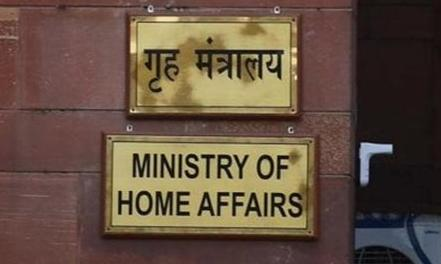More Power to J&K Lieutenant Governor

New Delhi/Srinagar:The Centre has significantly strengthened the authority of the lieutenant-governor in Jammu and Kashmir, empowering him to make decisions on crucial matters such as police and all-India services officers and granting sanctions for prosecution in various cases. The Opposition slammed the Centre's move, calling it a step towards “disempowering" the people of Union territory.
The Union home ministry vested more powers to the J&K L-G on Friday by amending rules framed under the Jammu and Kashmir Reorganisation Act 2019. This act, passed alongside the abrogation of Article 370, bifurcated the erstwhile state into two Union territories -- Jammu and Kashmir and Ladakh.
In the past, proposals concerning police, public order, all-India services and the anti-corruption bureau required approval from the finance department of Jammu and Kashmir before reaching the L-G.
Under the revised rules, such proposals must now be presented directly to the L-G through the chief secretary of the Union territory.
According to the Union home ministry order, the L-G's authority has extended further to the appointment of the advocate-general and other law officers. These appointments, previously decided upon by the government, will now require the L-G's approval.
Following the Centre's move, decisions regarding prosecution sanctions and filing appeals will also come under the L-G's purview. Additionally, matters related to prisons, the directorate of prosecution and the forensic science laboratory will be handled directly by the L-G.
"No proposal that requires previous concurrence of the finance department with regard to police, public order, all-India service and anti-corruption bureau to exercise the discretion of the lieutenant-governor under the Act shall be concurred or rejected unless it has been placed before the lieutenant-governor through the chief secretary," the Union home ministry notification stated.
The L-G's role in bureaucratic matters has also been amplified.
Proposals for postings and transfers of administrative secretaries, along with those concerning IAS and IPS officers, will be routed through the L-G's office.
The Supreme Court has directed the restoration of statehood in Jammu and Kashmir "at the earliest" and holding elections to the Assembly by September 30. However, the government sources clarified that the notification dated July 13 regarding the transaction of business rules was not an amendment to the Jammu and Kashmir Reorganisation Act 2019 but a simple amendment to the "transaction rules" which are issued to avoid any ambiguity.
The Centre's decision has met with criticism from some political parties in Jammu and Kashmir.
On Saturday, various political parties expressed their disapproval of the Centre's move to grant additional powers to Jammu and Kashmir's lieutenant-governor in matters concerning police and all-India service officers.
The National Conference (NC) and the People's Democratic Party (PDP) labelled the decision as a step towards "disempowering" the people of Jammu and Kashmir, while the Congress condemned the move as a "murder of democracy". The Apni Party called for a unified protest against the decision.
Reacting to this order, NC vice-president Omar Abdullah raised concerns about the implications of having a "powerless and rubber stamp" chief minister who would need the L-G's approval even for minor appointments.
"This is why a firm commitment to laying out the timeline for the restoration of full and undiluted statehood for Jammu and Kashmir is a prerequisite for these polls. The people of Jammu and Kashmir deserve better than a powerless and rubber stamp CM who will have to beg the L-G to get his/her peon appointed," the NC vice president said.
Congress general secretary Jairam Ramesh remarked that the increased powers given to the Jammu and Kashmir L-G suggested a dim outlook for the restoration of full-fledged statehood in the near future.
In a post on 'X', he said, "The only meaning that can be drawn from this notification is that full-fledged statehood for Jammu and Kashmir does not seem likely in the immediate future."
PDP chief Mehbooba Mufti's daughter and media advisor Iltija Mufti highlighted the perceived agenda behind the decision, suggesting that it aimed at limiting the powers of any future elected government in the region.
"The order seeks to disempower the powers of the next Jammu and Kashmir state government only because the BJP doesn't want to cede control or lose its iron grip over Kashmiris. Statehood is out of the question. An elected government in Jammu and Kashmir will be reduced to a municipality," she said.
She raised concerns about the potential impact of the Union government's decision on the upcoming Assembly elections and the Centre's reluctance to relinquish control in Jammu and Kashmir.
Jammu and Kashmir Congress president Vikar Rasool Wani echoed the sentiment of democracy being under threat, describing the move as a "murder of democracy" that will hinder the path to true statehood restoration.
Apni Party chief Altaf Bukhari called for unity among political parties in opposing the Centre's decision, warning against the creation of a "powerless Assembly" that will diminish the effectiveness of elected representatives in serving the region's interests.
"We appeal to all parties to shun political differences and come together on this issue. If we cannot stand united today, then we will never be," Mr Bukhari added.

